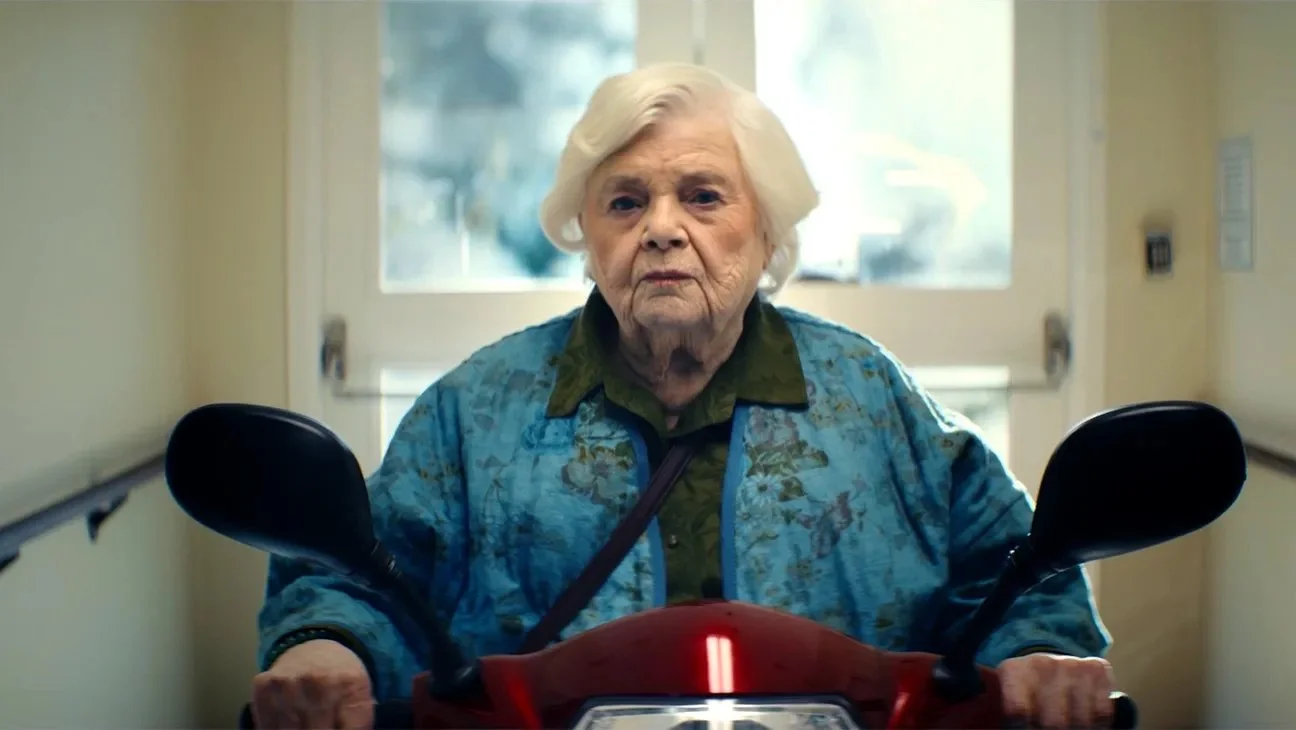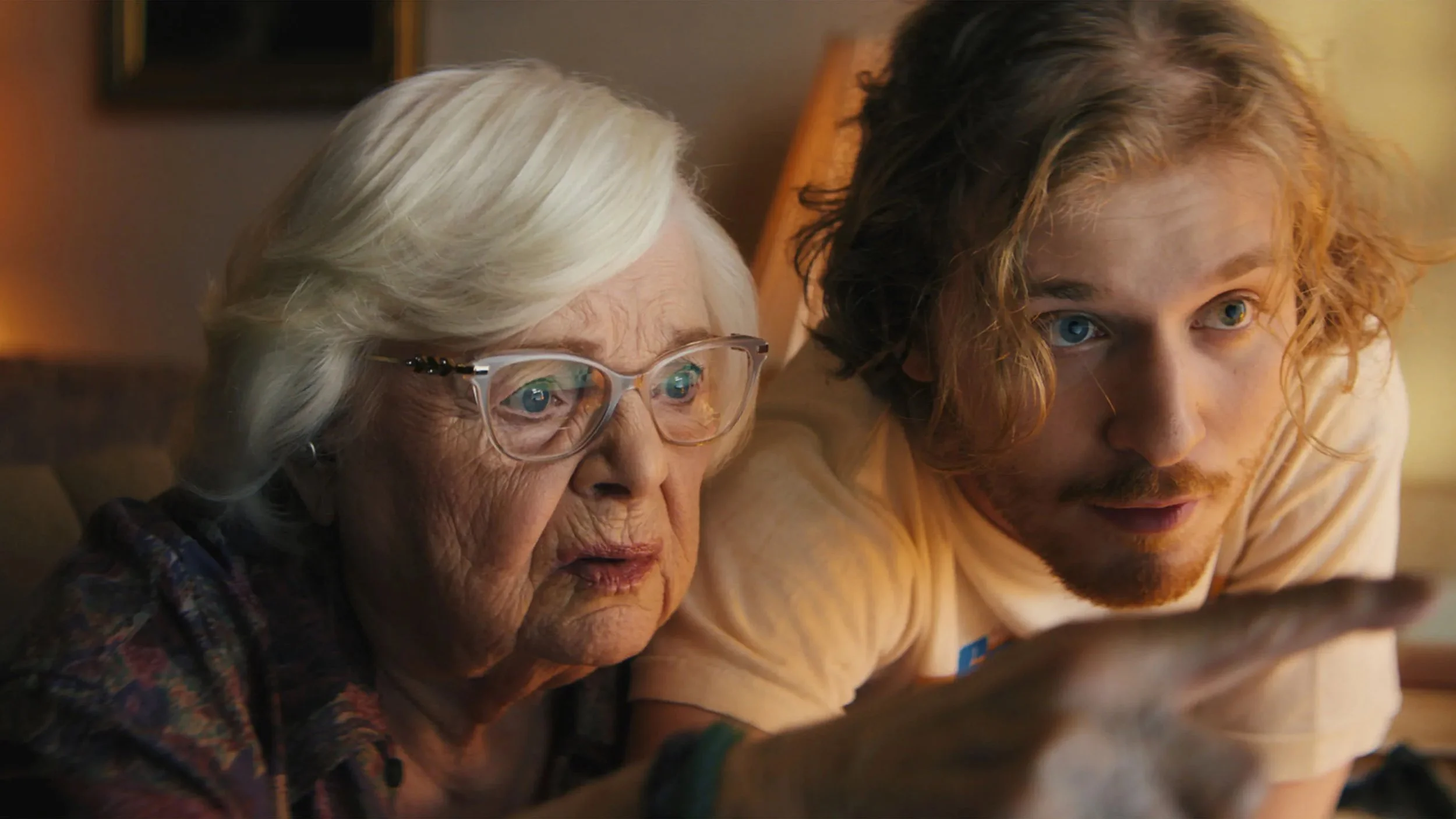'Thelma' Review: The Mission Impossible Spinoff that We Desperately Needed
The titular Thelma (June Squibb) is a cheerful woman who, at 93 years of age, is still pleasantly surprised by the little things in life. She is doted upon by her grandson Danny (Fred Hechinger), who means well, but is often smothering with his affection. As it turns out, this attitude towards his grandmother is strongly reinforced by Danny’s overbearing parents (Parker Posey and Clark Gregg), who don’t hesitate to subject him to similar concerns about his wellbeing.
One day, Thelma receives a distressing phone call from her grandson. He confesses that he has done something terrible, and he has been imprisoned as a result. Another man orders her to send money to secure Danny’s release. Thelma doesn’t hesitate to send money to help him, and her . Only after she has sent the money does she confirm that Danny never called her, that she was speaking to strangers. She has been scammed out of ten thousand dollars. The police are dismissive that they’ll ever get her money back, and her family decides that it’s time that she stop living independently.
Thelma does not accept either of those things, and she decides to take matters into her own hands. With the grudging help of an old friend named Ben (Richard Roundtree, in his final film appearance), Thelma eludes her family and embarks on a journey to find the people who stole her money. As this goes on, Thelma’s family try to find her, even as their anxieties are brought to the forefront.
Filmmakers like Atom Egoyan (Remember) and Steven Spielberg (Munich) have already proved that you can get a lot of drama and suspense out of scenes where elderly people are forced into moments where they are physically or mentally struggling with seemingly ordinary tasks. This film does something similar by taking dozens of action and thriller tropes and rendering them utterly silly. Writer/director Josh Margolin (whose grandmother inspired this story) never runs out of clever and funny ways to parody action stereotypes. The film openly references the Mission: Impossible film series (with Tom Cruise’s blessing; he is given a special thanks in the credits). Squibb is at her best during such moments where she’s supposedly in a dramatic scene, only to stop and have a sweet moment with a total stranger.
As with so many great comedies, there is also plenty of room for pathos. The film even allows for a genuinely shocking moment which is guaranteed to inspire a few gasps from its audience. And as mentioned before, Thelma’s daughter, son-in-law, and grandson have moments which will induce as much cringing as laughter. The best scenes of the film rest with Squibb and Roundtree. Their characters have a long history, and despite the actors’ chemistry with each other, not all of it is pleasant. They are both struggling with the truth of their longevity, and they responding to it in very different ways. Margolin allows the two of them to have heartfelt conversations which are grounded in reality, but never too much that they detract from the film’s tone.
It is this level of heart which provides the film with its greatest strength. Thelma is not bitter or cynical, but nor is she a saint. Her kindly nature gives her a simple appreciation for the life she has left, but it also masks a genuine conflict concerning the life she’s lived, and concerning her own increased frailty. Squibb walks that delicate tightrope of playing a woman who is not disillusioned by this act of evil, but neither will she be a pushover about it. Likewise, the family members are not evil people; they’re so neurotic that they enable each other, until Thelma decides that enough is enough.
All in all, Thelma is a triumph which any filmmaker would be proud of, made all the more remarkable by the fact that this is Margolin’s feature film debut. It was wonderful to see Squibb get a chance to play her first leading role at 94, and it provided the late, great, Roundtree with a brilliant swan song to finish his long and diverse career.



